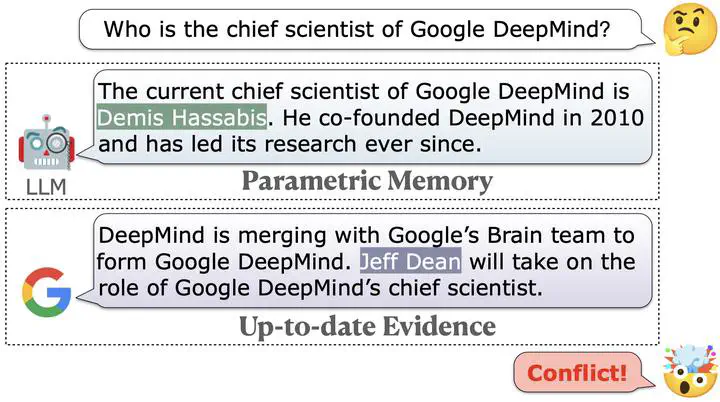Adaptive Chameleon or Stubborn Sloth: Revealing the Behavior of Large Language Models in Knowledge Conflicts
 An example of knowledge conflict between an LLM’s (GPT-4 in this case) parametric memory and retrieved evidence (i.e., counter-memory).
An example of knowledge conflict between an LLM’s (GPT-4 in this case) parametric memory and retrieved evidence (i.e., counter-memory).
Abstract
By providing external information to large language models (LLMs), tool augmentation (including retrieval augmentation) has emerged as a promising solution for addressing the limitations of LLMs’ static parametric memory. However, how receptive are LLMs to such external evidence, especially when the evidence conflicts with their parametric memory? We present the first comprehensive and controlled investigation into the behavior of LLMs when encountering knowledge conflicts. We propose a systematic framework to elicit high-quality parametric memory from LLMs and construct the corresponding counter-memory, which enables us to conduct a series of controlled experiments. Our investigation reveals seemingly contradicting behaviors of LLMs. On the one hand, different from prior wisdom, we find that LLMs can be highly receptive to external evidence even when that conflicts with their parametric memory, given that the external evidence is coherent and convincing. On the other hand, LLMs also demonstrate a strong confirmation bias when the external evidence contains some information that is consistent with their parametric memory, despite being presented with conflicting evidence at the same time. These results pose important implications that are worth careful consideration for the further development and deployment of tool- and retrieval-augmented LLMs.